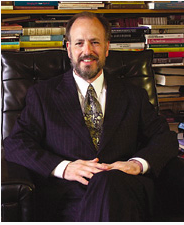Recycling, as you know, is one of the principle tenants of the Religion of Environmentalism.
Criticize recycling, even on scientific grounds, and you’re a candidate for crucifixion, as I’ve learned firsthand.
But of course all the dogma in the world and of course all the adherents to that dogma do not, in the end, alter facts.
Steven Landsburg, an economics professor at the University of Rochester, in Rochester, New York, included the following as part of a longer essay (that longer essay is entitled “Why I’m not an Environmentalist,” and it’s well worth reading), in which he calls environmentalism a “coercive ideology” targeting children, the better to inculcate their young brains with apocalyptic propaganda.
Here is part of what he wrote his daughter’s teacher:
We do not recycle. We teach our daughter not to recycle. We teach her that people who try to convince her to recycle, or who try to force her to recycle, are intruding on her rights.
After my daughter progressed from preschool to kindergarten her teachers taught her to conserve resources by rinsing out her paper cup instead of discarding it. I explained to her that time is also a valuable resource and it might be worth sacrificing some cups to save time…
Here’s the full letter:
Dear Rebecca:
When we lived in Colorado, Cayley was the only Jewish child in her class. There were also a few Moslems. Occasionally, and especially around Christmas time, the teachers forgot about this diversity and made remarks that were appropriate only for the Christian children. These remarks came rarely, and were easily counteracted at home with explanations that different people believe different things, so we chose not to say anything at first. We changed our minds when we overheard a teacher telling a group of children that if Santa didn’t come to your house, it meant you were a very bad child; this was within earshot of an Islamic child who certainly was not going to get a visit from Santa. At that point, we decided to share our concerns with the teachers. They were genuinely apologetic and there were no more incidents. I have no doubt that the teachers were good and honest people who had no intent to indoctrinate, only a certain naïveté derived from a provincial upbringing.
Perhaps that same sort of honest naïveté is what underlies the problems we’ve had at the JCC this year. Just as Cayley’s teachers in Colorado were honestly oblivious to the fact that there is diversity in religion, it may be that her teachers at the JCC have been honestly oblivious that there is diversity in politics.
Let me then make that diversity clear. We are not environmentalists. We ardently oppose environmentalists. We consider environmentalism a form of mass hysteria akin to Islamic fundamentalism or the War on Drugs. We do not recycle. We teach our daughter not to recycle. We teach her that people who try to convince her to recycle, or who try to force her to recycle, are intruding on her rights.
The preceding paragraph is intended to serve the same purpose as announcing to Cayley’s Colorado teachers that we are not Christians. Some of them had never been aware of knowing anybody who was not a Christian, but they adjusted pretty quickly.
Once the Colorado teachers understood that we and a few other families did not subscribe to the beliefs that they were propagating, they instantly apologized and stopped. Nobody asked me what exactly it was about Christianity that I disagreed with; they simply recognized that they were unlikely to change our views on the subject, and certainly had no business inculcating our child with opposite views.
I contrast this with your reaction when I confronted you at the preschool graduation. You wanted to know my specific disagreements with what you had taught my child to say. I reject your right to ask that question. The entire program of environmentalism is as foreign to us as the doctrine of Christianity. I was not about to engage in detailed theological debate with Cayley’s Colorado teachers and they would not have had the audacity to ask me to. I simply asked them to lay off the subject completely, they recognized the legitimacy of the request, and the subject was closed.
I view the current situation as far more serious than what we encountered in Colorado for several reasons. First, in Colorado we were dealing with a few isolated remarks here and there, whereas at the JCC we have been dealing with a systematic attempt to inculcate a doctrine and to quite literally put words in children’s mouths. Second, I do not sense on your part any acknowledgment that there may be people in the world who do not share your views. Third, I am frankly a lot more worried about my daughter’s becoming an environmentalist than about her becoming a Christian. Fourth, we face no current threat of having Christianity imposed on us by petty tyrants; the same can not be said of environmentalism. My county government never tried to send me a New Testament, but it did send me a recycling bin.
Although I have vowed not to get into a discussion on the issues, let me respond to the one question you seemed to think was very important in our discussion: Do I agree that with privilege comes responsibility? The answer is no. I believe that responsibilities arise when one undertakes them voluntarily. I also believe that in the absence of explicit contracts, people who lecture other people on their “responsibilities” are almost always up to no good. I tell my daughter to be wary of such people — even when they are preschool teachers who have otherwise earned a lot of love.
Sincerely,
Steven Landsburg
To my knowledge, the teacher did not reply.


